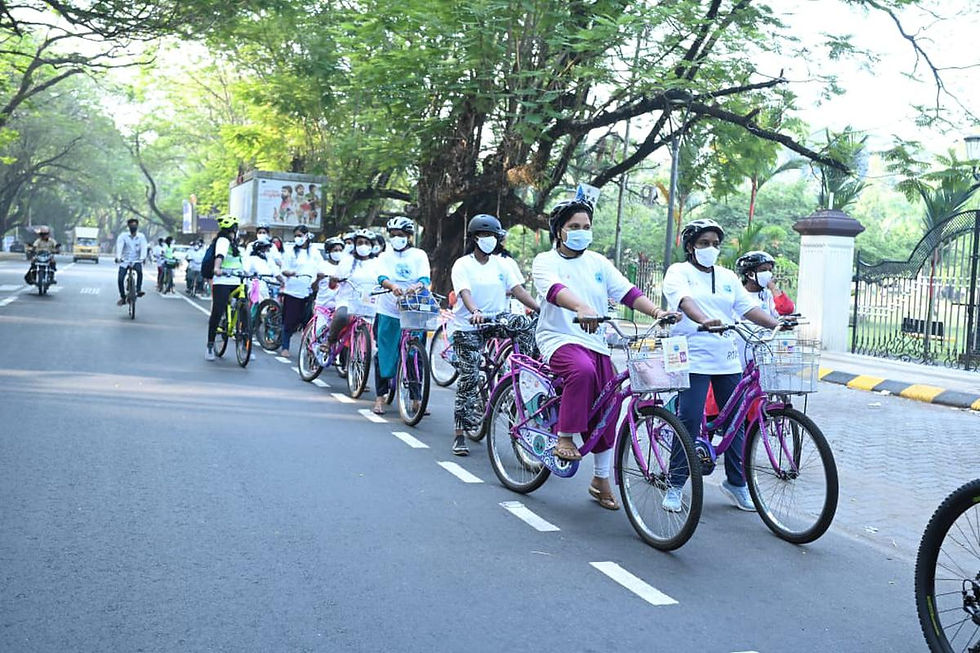Pedaling Forward
- Feb 27, 2024
- 2 min read
Updated: Jul 17, 2025
Cycling is making a comeback in India’s smaller cities: from coaching-students in Kota to women in Kochi. As some cities make space for cycling tracks and revamp public bike Systems, others struggle with encroachments and neglect. Amid this mixed bag of progress and hurdles, local communities are stepping up to pedal change and push for cleaner, safer mobility. Where does your city stand?

Cycling is trending in smaller cities! In India’s largest coaching hub, students commute daily by cycling because of its affordability and convenience.

This has made Kota the 2nd largest second-hand bicycle market in the country!
Selected as one of the Bloomberg Initiative for Cycling Infrastructure (BICI) Cities 2023, Pimpri-Chinchwad aims to implement a 15-minute city neighbourhood model prioritising cycling infrastructure. Furthermore, 39,000 commuters had registered by October last year for Srinagar’s Public Bicycle Sharing (PBS) service in collaboration with Chartered Bikes.
Providing access to bicycles in docking hubs for short-term use, the PBS has intended to be an eco-friendly and affordable choice of transportation. However, Bhopal’s PBS service has faltered due to administrative mismanagement, with bikes in disrepair and cycle tracks encroached on by parked vehicles.
Bhubaneswar’s unused Mo Bikes were repaired and redistributed among women in SHGs five years after its launch. Chandigarh has over 200 km of cycle tracks, yet encroachments, inadequate connectivity and poor design have hindered their effectiveness.
Nevertheless, the recent technological revamp of Mysuru’s “TrinTrin” aims to revive the PBS through pedal-assist bicycles and IoT-integrated locking hubs, along with constructing an 8.72 km dedicated cycle track. According to WRI India, popularising cycling in intensely urbanising spaces requires ensuring cyclist safety and user engagement, with collaborative efforts by city authorities and bike operators.

Community engagement also has a pivotal role in sustaining public interest in cycling. “Cycle with Kochi” empowers women from economically weaker sections in the city by teaching them to cycle. Similarly, Cyclotrots – Kota’s community of over 4000 cyclists – is organising workshops for students to reduce carbon emissions and pollution. By raising awareness about well-being and environmental sustainability, these initiatives are rallying to make cities more cycle-friendly!
Comments